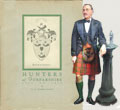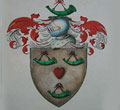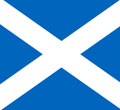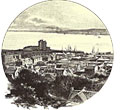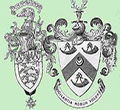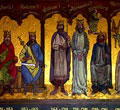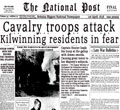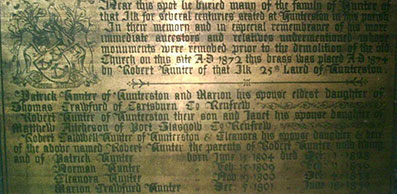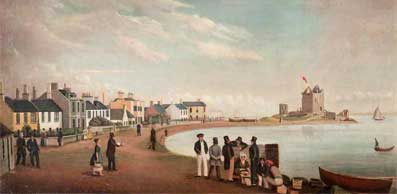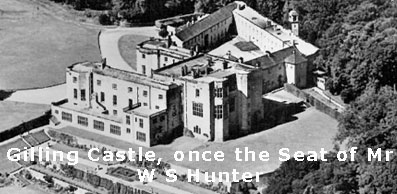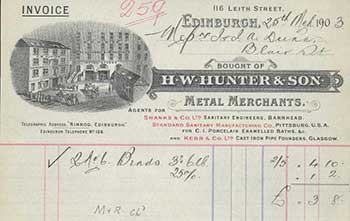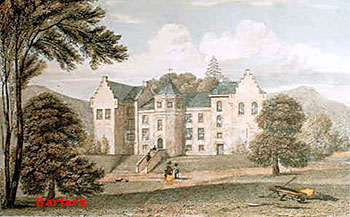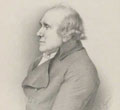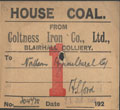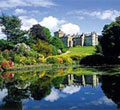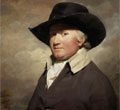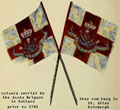May 25
A wee story about Robert Caldwell Hunter the 25th Laird of Hunterston
After reading the book (below) there was an incident I thought worth retelling to show a wee human side to history. The story is true though I manufactured the newspaper photo. It just shows that in the last 200 years we have the motor car, jet engine and even space travel but politicians are still politicians.
A History of the Ayrshire Yeomanry Cavalry published 1881.
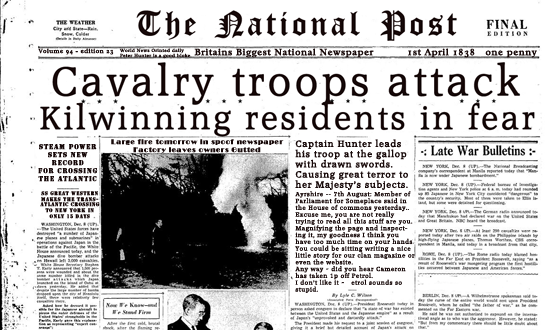
Passing to the year 1838, we find that a member of the House of Commons (Mr. Gillon) brought some very grave charges against the conduct of the Ayrshire Yeomanry Cavalry. It appears that a detachment of the 3d troop, under Captain Hunter, had been ordered to Kilwinning on the occasion of the county election on 7th August 1837, for the purpose of protecting the poll and preserving the public peace. Mr. Gillon, in his place in Parliament, asserted that the Yeomanry galloped into the town with drawn swords, to the great terror of her Majesty's subjects, and that they acted as regular canvassers for the Tories. These charges, which were devoid of the smallest particle of truth, were evidently concocted for the purpose of furnishing a little miserable political capital, and were promptly dropped when they had served their purpose.
Had any vindication of the conduct of the Yeomanry been required, it would have been furnished by the following letter from Captain Hunter, which appeared in the Standard:Hunterston, April 6th, 1838.
" Sir,
I regret to find by to-day's paper that the motion of Mr. Gillon, regarding the conduct of the Ayrshire Yeomanry during the late elections, has been withdrawn, as I know that an inquiry would have shown that the information communicated regarding them was in every respect incorrect. Being the officer who commanded the detachment called into Kilwinning on the occasion alluded to, I beg to state, in the most express manner, that every one of the allegations against the conduct of the men is completely contrary to fact, and, in contradiction, I have to state the following, which I pledge myself as an officer and a gentleman to be correct, in so far as I know or had an opportunity of judging.
The corps was not called out the day previous, as stated, but assembled on the morning of the day of election, and very early, that the men might not pass through any of the polling stations after the poll had commenced, and only one troop was out.
About two o'clock P.M. of that day I received an order from the Sheriff to bring my detachment into Kilwinning in aid of the civil -power, and we did not enter it at a gallop as alleged. We would have been ashamed to have done anything so ridiculous ; on the contrary, we came in at an ordinary trot, and in turning up a narrow street near to the polling station, I caused my men to walk, as there was a great crowd there. I understood that the reason of our being called in was that there had been considerable rioting, and that many of the Conservative voters had been grossly insulted by being spat upon and otherwise abused, and I know that Lord Kelburne had been attacked by the mob, had part of his clothes torn off, and with difficulty escaped.
We remained drawn up before the polling booth about an hour and a half, and till the polling was over, when we were ordered to withdraw from the town. During this time no man moved from the ranks. I may mention, in case it should be meant as an allegation, that we had our swords drawn on entering the town; but I never heard that this was considered any ground of complaint against cavalry when on duty. Shortly after arriving, however, I was told that it would please the people if I would cause the men to return their swords, and if I would do so they promised to be quiet. I accordingly did so, and we received three cheers. I state this merely to show that there was no desire on our part to irritate.
In withdrawing from the town, and as soon as our backs were turned, we were assailed by a complete shower of stones, which was continued all the way out. I did not, however, allow any of the men to turn; I considered it would have served little purpose to have done so. If we had rode over or wounded any of the mob, it would have afforded to their instigators a good handle of complaint against the yeomanry. In returning, our swords were not drawn, and, as it was, no individual was attacked or in any way injured by our men ; on the contrary, several of the yeomanry were a good deal hurt and cut by the stones.
I shall only further remark, that nothing is so rigidly excluded from our corps as politics. We have men of all parties. One of the officers with me in Kilwinning was the seconder of the Liberal candidate on the nomination day, and several of the men had voted for him that morning.
It is said that the yeomanry should not have been called out at all. That may be the case or not, but it was no matter of ours. We were ordered out by the civil authorities, and by them a part was called into Kilwinning, and I assert that no men could have behaved with more forbearance than those whom I had the honour to command on that occasion; and in behaving thus they only acted as the men of this regiment have always hitherto done, and will, I feel confident, always continue to do.
The detachment consisted of thirty-four men and three officers.
Your obedient servant, Robert Hunter





